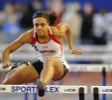
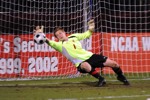
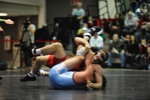
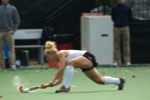
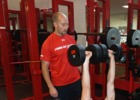
Taking athletes to the next level: Why this system works!!
When determining the right training program for an individual athlete, one must be cognizant of the style of training and the objectives sought through performance training. Every coach working in the performance field has his/her own individualized reasons for their philosophy of training. Barry’s experience of working with athletes transitioning from high school level through college and often on to professional or international levels of competition has given him a him a profound understanding of what methods truly work. He has seen coaches who focus on specific movements of certain sports; many emphasize the capacity to improve performance with strict adherence to sport specificity - this is not a misguided notion, but often lost in the specificity argument is the foundation of preparation that is most valuable in athletes in developmental stages. Barry’s training philosophy can be misinterpreted as a generalist approach. There is truth in that the early phases of his prescribed workouts often are more general in focus, but Barry has multitudes of experience seeing athletes with younger training ages (less years of organized systematic performance training) make astounding improvements with a “general approach.” The foundation of his philosophy rests on that characteristic of adaptation: early in performance training process movements over emphasizing specificity within a particular sport or player position can undermine the long term training picture. This is a basic view of Barry’s philosophy, the breadth of his approach goes much further.
When determining the right training program for an individual athlete, one must be cognizant of the style of training and the objectives sought through performance training. Every coach working in the performance field has his/her own individualized reasons for their philosophy of training. Barry’s experience of working with athletes transitioning from high school level through college and often on to professional or international levels of competition has given him a him a profound understanding of what methods truly work. He has seen coaches who focus on specific movements of certain sports; many emphasize the capacity to improve performance with strict adherence to sport specificity - this is not a misguided notion, but often lost in the specificity argument is the foundation of preparation that is most valuable in athletes in developmental stages. Barry’s training philosophy can be misinterpreted as a generalist approach. There is truth in that the early phases of his prescribed workouts often are more general in focus, but Barry has multitudes of experience seeing athletes with younger training ages (less years of organized systematic performance training) make astounding improvements with a “general approach.” The foundation of his philosophy rests on that characteristic of adaptation: early in performance training process movements over emphasizing specificity within a particular sport or player position can undermine the long term training picture. This is a basic view of Barry’s philosophy, the breadth of his approach goes much further.
Sport performance vs athletic performance
Sport performance, not athletic performance, is grounded in skill, vision, reaction, cognitive processing and intangibles that include a competitive determination. Barry has worked with an athlete who started in a National Championship game in women’s lacrosse, who was the slowest on the field but was named to the all-tournament team, because she was more fit and displayed characteristics of sport performance that made her a standout even among the nation’s best. Barry worked with a soccer player who was slowest on his collegiate National Championship team and then several years later was a regular starter as a midfielder in MLS, because he was more fit and processed the game better than most of his teammates. Barry spent years assisting Dwight Galt with football training where he had the chance to work with a linebacker than never ran faster than 4.75 in his 40 yard sprint time and yet was a multi-year starter in the NFL because he had a game sense that was unmatched!
The point of sharing these true stories are two-fold: 1) the goal of your athletic performance training regimen should be to maximize your potential in your given sport, not to register better numbers than your teammates or competitors, and 2) specificity of sport preparation needs to be most emphasized when practicing sport. Performance training requires near maximal efforts to create adaptation and thus should maintain a focus on output and adaptation while skill acquisition, game speed, and on-field/on-court/in-arena game performance is maximized in periods of skill acquisition and game practice. There are grey areas in which the two heavily overlap, but they should not be a regularly combined focus.
Sport performance, not athletic performance, is grounded in skill, vision, reaction, cognitive processing and intangibles that include a competitive determination. Barry has worked with an athlete who started in a National Championship game in women’s lacrosse, who was the slowest on the field but was named to the all-tournament team, because she was more fit and displayed characteristics of sport performance that made her a standout even among the nation’s best. Barry worked with a soccer player who was slowest on his collegiate National Championship team and then several years later was a regular starter as a midfielder in MLS, because he was more fit and processed the game better than most of his teammates. Barry spent years assisting Dwight Galt with football training where he had the chance to work with a linebacker than never ran faster than 4.75 in his 40 yard sprint time and yet was a multi-year starter in the NFL because he had a game sense that was unmatched!
The point of sharing these true stories are two-fold: 1) the goal of your athletic performance training regimen should be to maximize your potential in your given sport, not to register better numbers than your teammates or competitors, and 2) specificity of sport preparation needs to be most emphasized when practicing sport. Performance training requires near maximal efforts to create adaptation and thus should maintain a focus on output and adaptation while skill acquisition, game speed, and on-field/on-court/in-arena game performance is maximized in periods of skill acquisition and game practice. There are grey areas in which the two heavily overlap, but they should not be a regularly combined focus.
Injury Prevention plays the primary role
Because the training focus found in the Sport Performance Preparation series is more traditional and foundational in its approach, we must mention that the focus on injury prevention cannot be underemphasized! This is where true sport specificity finds a home in Barry’s training programs. As athletes mature through training years opportunities to maximize prehab opportunities and focus on specific needs of sport increase. As specific needs associated with your sport come more into play, you may need to seek personalized consultation through SPc or look into performance coaches that can spend the time you need focusing on aspects of your preparation that are of greatest concern.
Because the training focus found in the Sport Performance Preparation series is more traditional and foundational in its approach, we must mention that the focus on injury prevention cannot be underemphasized! This is where true sport specificity finds a home in Barry’s training programs. As athletes mature through training years opportunities to maximize prehab opportunities and focus on specific needs of sport increase. As specific needs associated with your sport come more into play, you may need to seek personalized consultation through SPc or look into performance coaches that can spend the time you need focusing on aspects of your preparation that are of greatest concern.
Athletes in developmental age groups: prior to maximal physical maturity
There are tremendous similarities in physical preparation needed across a multitude of sports. There is no question that at the high end of performance capabilities there are often sport specific approaches that need addressing. That said, most athletes in developmental stages of sport preparation - any period of training prior to maximal physical maturation (females through their early-twenties, males through their mid-twenties) benefit from most traditional style strength and performance training exercises and drills. Barry’s years of experience training adolescents and young adults, is founded on the idea that improvements in overall athletic performance will enhance opportunities to be successful in sport.
There are tremendous similarities in physical preparation needed across a multitude of sports. There is no question that at the high end of performance capabilities there are often sport specific approaches that need addressing. That said, most athletes in developmental stages of sport preparation - any period of training prior to maximal physical maturation (females through their early-twenties, males through their mid-twenties) benefit from most traditional style strength and performance training exercises and drills. Barry’s years of experience training adolescents and young adults, is founded on the idea that improvements in overall athletic performance will enhance opportunities to be successful in sport.